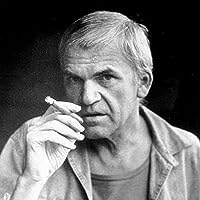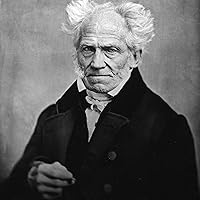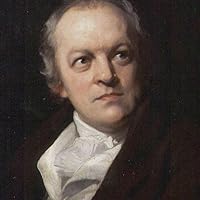Animal Welfare Quotes
Quotes tagged as "animal-welfare"
Showing 1-30 of 106
“If you want to test cosmetics, why do it on some poor animal who hasn't done anything? They should use prisoners who have been convicted of murder or rape instead. So, rather than seeing if perfume irritates a bunny rabbit's eyes, they should throw it in Charles Manson's eyes and ask him if it hurts.”
― My Point... And I Do Have One
― My Point... And I Do Have One

“Humanity's true moral test, its fundamental test…consists of its attitude towards those who are at its mercy: animals.”
―
―

“If you don't like pictures of animal cruelty being posted on social media, you need to help stop the cruelty, not the pictures. You should be bothered that its happening, not that you saw it.”
―
―

“Men are the devils of the earth, and the animals are the tormented souls.
- On Religion”
― The Horrors and Absurdities of Religion
- On Religion”
― The Horrors and Absurdities of Religion

“When you start with a necessary evil, and then over time the necessity passes away, what's left?”
― Dominion: The Power of Man, the Suffering of Animals, and the Call to Mercy
― Dominion: The Power of Man, the Suffering of Animals, and the Call to Mercy

“Forests and meat animals compete for the same land. The prodigious appetite of the affluent nations for meat means that agribusiness can pay more than those who want to preserve or restore the forest. We are, quite literally, gambling with the future of our planet – for the sake of hamburgers”
― Animal Liberation
― Animal Liberation

“One saw a bird dying, shot by a man. It was flying with rhythmic beat and beautifully, with such freedom and lack of fear. And the gun shattered it; it fell to the earth and all the life had gone out of it. A dog fetched it, and the man collected other dead birds. He was chattering with his friend and seemed so utterly indifferent. All that he was concerned with was bringing down so many birds, and it was over as far as he was concerned. They are killing all over the world. Those marvellous, great animals of the sea, the whales, are killed by the million, and the tiger and so many other animals are now becoming endangered species. Man is the only animal that is to be dreaded.”
― Krishnamurti to Himself: His Last Journal
― Krishnamurti to Himself: His Last Journal

“Be a good boy, remember; and be kind to animals and birds, and read all you can.”
― Jude the Obscure
― Jude the Obscure

“The animals of the planet are in desperate peril... Without free animal life I believe we will lose the spiritual equivalent of oxygen.”
―
―

“If you really care about animals, then stop trying to figure out how to exploit them 'compassionately'. Just stop exploiting them.”
―
―

“I'm sorry, my child, I just find it hard to whip up an interest in the subject. It's admirable, what you do, what she does, but to me animal-welfare people are a bit like Christians of a certain kind. Everyone is so cheerful and well-intentioned that after a while you itch to go off and do some raping and pillaging. Or to kick a cat.”
― Disgrace
― Disgrace
“Some animal rights activists are demanding vegetarianism, even veganism now, or nothing. But since only 4 or 5 percent of Americans claim to be vegetarians, 'nothing' is the far more likely outcome. I ask these activists to weigh the horrors of Bladen County's industrial farms and the Tar Heel slaughterhouse against the consequences of doing nothing to alleviate the hour-to-hour sufferings of its victims. Is not a life lived off the factory farm and a death humanely inflicted superior to the terrible lives we know they lead and the horrible deaths we know they suffer in Bladen County today?”
― An American Trilogy: Death, Slavery, and Dominion on the Banks of the Cape Fear River
― An American Trilogy: Death, Slavery, and Dominion on the Banks of the Cape Fear River
“There can be no question that parrots have more intellect than any other kind of bird, and it is this that makes them such favourite pets and brings upon them so many sorrows. ...Men will buy them ... and carry them off to all quarters of the native town, intending, I doubt not, to treat them kindly; but "the tender mercies of the wicked are cruel", and confinement in a solitary cell, the discipline with which we reform hardened criminals, is misery enough to a bird with an active mind, without the superadded horrors of ... life in a tin case, hung from a nail in the wall of a dark shop... Why does the Society for Prevention of Cruelty to Animals never look into the woes of parrots?
...
However happy you make her captivity, imagination will carry her at times to the green field and blue sky, and she fancies herself somewhere near the sun, heading a long file of exultant companions in swift career through the whistling air. Then she opens her mouth and rings out a wild salute to all parrots in the far world below her.”
―
...
However happy you make her captivity, imagination will carry her at times to the green field and blue sky, and she fancies herself somewhere near the sun, heading a long file of exultant companions in swift career through the whistling air. Then she opens her mouth and rings out a wild salute to all parrots in the far world below her.”
―
“Making a difference to the welfare of Animals doesn't require a massive effort; it requires small actions that can make a significant impact.”
―
―

“What sensitive, sane soul can stand in the presence of such insanity and do nothing? Yet to expose the slaughter of seals in Canada is to deliver oneself into the hands of a bureaucratic inquisition. To witness the killing of a seal is a crime. To film or photograph the slaughter is a felony. To oppose the massacre is to subject oneself to jail time, beatings, heavy fines, and officially sanctioned harassment. - Paul Watson”
―
―
“He [Ray] was working in a tool-and-die factory in Brooklyn, but before that had drifted around, had been employed at the Studebaker plant in South Bend and also at an Omaha slaughterhouse on the kill floor. Once I asked him what that was like. "You ever heard of Auschwitz?”
― Chronicles, Volume One
― Chronicles, Volume One
“Before we can truly understand the Animal Kingdom, we must first learn to respect all of the sentient beings that exist within it”
―
―
“A certain twisted, but all-too-common, interpretation of the Golden Rule is that we should ‘do unto others in order to get them to do unto us’.”
― Puppies, Pigs, and People: Eating Meat and Marginal Cases
― Puppies, Pigs, and People: Eating Meat and Marginal Cases
“I was a non-veg eater
I craved for meat
My crave involved killing
My crave involved bloodshed
So I killed my crave.”
― Dear Reader, by, Julie and other stories
I craved for meat
My crave involved killing
My crave involved bloodshed
So I killed my crave.”
― Dear Reader, by, Julie and other stories
“Sea World was treading carefully. Park officials stated repeatedly how essential and valuable Tilikum had been to their operations. This is true. Zoos and circuses are a business, and Blackstone paid 2.3 billion dollars for its purchase. The most productive employees in that business, in terms of labor and revenue, are the orcas themselves. Tilikum has performed for almost nineteen years in Orlando, sired thirteen calves, and produced in the range of a billion dollars in revenue. Nevertheless, Sea World did not believe that Tilikum had earned the right to retire. None of that billion dollars would be used to build an ocean sanctuary for older captive orcas. They do not deserve it.”
― Fear of the Animal Planet: The Hidden History of Animal Resistance
― Fear of the Animal Planet: The Hidden History of Animal Resistance

“A common misconception is that pets have easy lives. They don’t have to do any work to find food and shelter or to protect themselves from harm. But making life easy for captive animals doesn’t do them the great favor we might imagine. Providing them with appropriate challenges affords them opportunities to put their functional competencies to work, to engage in their full range of behaviors, and to engage their intelligence.1 And, in fact, various studies show that animals like to work and will engage in work for a reward, even if the reward is otherwise available for free. “Agency” has recently entered the vocabulary of animal welfare science and captures an important element of what animals in captivity need.”
― Run, Spot, Run: The Ethics of Keeping Pets
― Run, Spot, Run: The Ethics of Keeping Pets
“[...] the chimps had many empty hours to fill. Time can seem endless and often cruel for caged animals.
Nim and Sally did have some diversions in their enclosure: a small television set, rarely watched; a tire swing; a basketball set; and a variety of allegedly indestructible toys. But the chimps mainly passed the time interacting with each other—grooming, cuddling, playing, chasing. When occasional squabbles erupted, their high-pitched screeches could be heard from a distance. Minutes later the couple would make up and hug. Nim was frequently seen signing “sorry” to Sally, who always forgave her close friend.
On his own, Nim spent hours flipping through the pages of old magazines, seeming particularly diverted by images of people. The magazines, which Nim tore to shreds, were swept away at the end of each day and replaced by new ones in the morning. But he did manage to keep two children's books intact—no small accomplishment. His prize possessions, they were carefully tucked away in the loft area of his cage. (WER would have appreciated Nim's affection for books.) During the day, Nim brought the books down from the loft and pored over them intently, as if studying for an exam. One was a Sesame Street book with an illustrated section on how to learn ASL. The other was in essence his personal photo album from his New York years, a battered copy of The Story of Nim: The Chimp Who Learned Language, published in 1980. In it, dozens of black-and-white photographs of Nim— with Terrace, LaFarge, Petitto, Butler, and a handful of others—tell the story of his childhood (or an idealized version of it) from his infancy to his return to Oklahoma. Nim appears dressed in little-boy clothes, doing household chores, and learning his first signs. The book ends with a photo of Nim and Mac playing together, cage-free, in Oklahoma. The accompanying text explains that Nim is a chimpanzee, not a human, which was why he had been sent back to IPS.”
― Nim Chimpsky: The Chimp Who Would Be Human
Nim and Sally did have some diversions in their enclosure: a small television set, rarely watched; a tire swing; a basketball set; and a variety of allegedly indestructible toys. But the chimps mainly passed the time interacting with each other—grooming, cuddling, playing, chasing. When occasional squabbles erupted, their high-pitched screeches could be heard from a distance. Minutes later the couple would make up and hug. Nim was frequently seen signing “sorry” to Sally, who always forgave her close friend.
On his own, Nim spent hours flipping through the pages of old magazines, seeming particularly diverted by images of people. The magazines, which Nim tore to shreds, were swept away at the end of each day and replaced by new ones in the morning. But he did manage to keep two children's books intact—no small accomplishment. His prize possessions, they were carefully tucked away in the loft area of his cage. (WER would have appreciated Nim's affection for books.) During the day, Nim brought the books down from the loft and pored over them intently, as if studying for an exam. One was a Sesame Street book with an illustrated section on how to learn ASL. The other was in essence his personal photo album from his New York years, a battered copy of The Story of Nim: The Chimp Who Learned Language, published in 1980. In it, dozens of black-and-white photographs of Nim— with Terrace, LaFarge, Petitto, Butler, and a handful of others—tell the story of his childhood (or an idealized version of it) from his infancy to his return to Oklahoma. Nim appears dressed in little-boy clothes, doing household chores, and learning his first signs. The book ends with a photo of Nim and Mac playing together, cage-free, in Oklahoma. The accompanying text explains that Nim is a chimpanzee, not a human, which was why he had been sent back to IPS.”
― Nim Chimpsky: The Chimp Who Would Be Human

“The Creator loves the animals he made, called them good, and made humanity his emissaries on earth to care for them. Where these Christian teachings have been taken seriously throughout history, we see Christians make genuine efforts to ease animal suffering and cure animal disease.”
― A Theology of Beasts: Christians and Veterinary Medicine
― A Theology of Beasts: Christians and Veterinary Medicine
“Secondly, this text will often refer to the “collapse of compassion” effect. It has been repeatedly demonstrated that humans care more about animals when they are presented as named individuals, rather than when they are shown in groups (Payne 2010). Generally, the more victims a tragedy has, the less humans will care, and the less-likely they are to donate their time or money to help solve the situation (Payne 2010; Cameron et al. 2011: 1). This is termed the “collapse of compassion” Effect.”
― The Disneyfication of Animals
― The Disneyfication of Animals
“On the rare occasions when farm animals have been individualized in fiction, perceptions of their
rights have changed. For example, Babe (1995) is a film that appears to have influenced some viewers’ perceptions of eating meat. Babe is a comedy- drama about an anthropomorphised pig that dreams of being a sheep dog. During the film, Babe (the pig) escapes being slaughtered several times, often in comical circumstances. The story ends happily with Babe achieving his ambition of becoming a “sheep dog” and thus avoiding his fate as a farmed pig. In the period following the film’s release, there was a dramatic rise in the number of vegetarians, especially young female vegetarians (Nobis 2009: 58). This change in attitude was dubbed the “Babe effect” (Nobis 2009: 58). The “Babe effect” likely occurred because this film depicted farm animals as intelligent, individual, and compassionate individuals, something that had seldom been done previously and is usually reserved for higher-order species (Plumwood 2012: 55–74).”
― The Disneyfication of Animals
rights have changed. For example, Babe (1995) is a film that appears to have influenced some viewers’ perceptions of eating meat. Babe is a comedy- drama about an anthropomorphised pig that dreams of being a sheep dog. During the film, Babe (the pig) escapes being slaughtered several times, often in comical circumstances. The story ends happily with Babe achieving his ambition of becoming a “sheep dog” and thus avoiding his fate as a farmed pig. In the period following the film’s release, there was a dramatic rise in the number of vegetarians, especially young female vegetarians (Nobis 2009: 58). This change in attitude was dubbed the “Babe effect” (Nobis 2009: 58). The “Babe effect” likely occurred because this film depicted farm animals as intelligent, individual, and compassionate individuals, something that had seldom been done previously and is usually reserved for higher-order species (Plumwood 2012: 55–74).”
― The Disneyfication of Animals
“As established at various points in this book, Walt was fond of animals. They inspired his most famous characters and works, such as Mickey Mouse, Bambi, The Jungle Book, and so forth. Therefore, Walt, WDAS, and Disney, owe their unique global success to animals. In a small way, WDAS does pay homage to animals, yet they have continuously ignored the harsh lives that most animals today experience. This text is of the opinion that all animals are sentient and can feel pain. However, given the reality and scale of animal harm today, one should hope that this position is incorrect. One should hope that WDAS is right; fish are objects, wild animals want to live in captivity, dogs desire human owners, cows are happy to lactate milk for other species, and so forth. Disney’s depictions of animal harm are hopefully the ones that are correct because if animals do have lives of their own, away from the selfishness of humans, then companies like Disney have made a huge mistake.”
― The Disneyfication of Animals
― The Disneyfication of Animals
“Pets enrich our lives and those of our children. We admire the tiger not only for its fearful symmetry but as a symbol of freedom itself, so we offer it rather more freedom than we would think fit for the chicken. It is impossible, however, to avoid the issue that both the chicken and the tiger are living on our terms.”
― Animal Welfare: Limping Towards Eden Paperback – April 29, 2005
― Animal Welfare: Limping Towards Eden Paperback – April 29, 2005
“Two dog-owners met one day to walk their dogs together. One owner had grown up in a small family that valued health, safety, and orderly, disciplined behaviour. The dog of this owner received regular veterinary care, two meals a day of low-fat dog food, and was walked on a leash. The other owner had grown up in a large community that valued conviviality, sharing of resources and close contact with the natural world. This dog (the owner's third - the first two had been killed by cars) had burrs in its coat, was fed generously but sporadically, and had never worn a collar in its life. Each owner, judging quality of life from very different viewpoints, felt sorry for the other's dog.” (Fraser, Weary, et al., 1997)”
―
―
All Quotes
|
My Quotes
|
Add A Quote
Browse By Tag
- Love Quotes 97k
- Life Quotes 75.5k
- Inspirational Quotes 72.5k
- Humor Quotes 43.5k
- Philosophy Quotes 29.5k
- Inspirational Quotes Quotes 27k
- God Quotes 26k
- Truth Quotes 23.5k
- Wisdom Quotes 23.5k
- Romance Quotes 23k
- Poetry Quotes 22k
- Death Quotes 20k
- Happiness Quotes 18.5k
- Life Lessons Quotes 18.5k
- Hope Quotes 18k
- Faith Quotes 18k
- Quotes Quotes 16.5k
- Inspiration Quotes 16.5k
- Spirituality Quotes 15k
- Religion Quotes 15k
- Motivational Quotes 15k
- Writing Quotes 14.5k
- Relationships Quotes 14.5k
- Life Quotes Quotes 14k
- Love Quotes Quotes 13.5k
- Success Quotes 13.5k
- Time Quotes 12.5k
- Motivation Quotes 12k
- Science Quotes 11.5k
- Knowledge Quotes 11k


